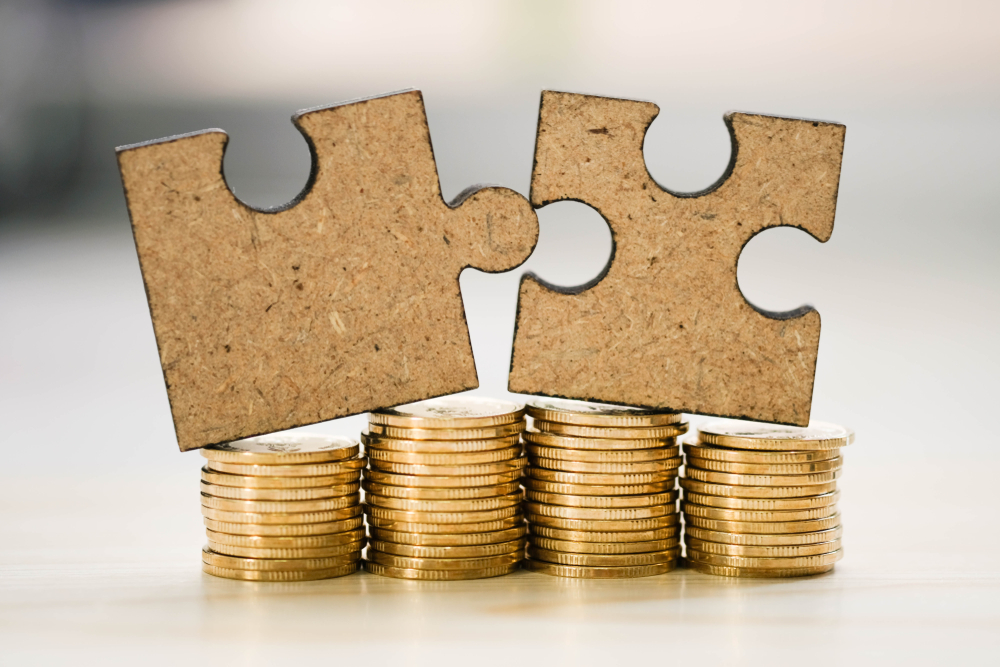News
Nine reasons to CHECK NOW if you need to register for self-assessment

The deadline to register for self-assessment is fast approaching, but there are some groups of people who may not know they need to do so. Check now.
If you work for yourself or run a business partnership, chances are you know you need to complete a self-assessment tax return.
But there are nine lesser-known reasons why you may need to complete one. For those who are new to self-assessment for the 2022/23 tax year, you’ll need to get your skates on to register for the Thursday 5 October deadline.
We can’t cover them all as the tax system is a rabbit warren with lots of exclusions and rules. Vicars have to go through the process, as do most people who earn just £1 of income overseas and those who earn over £100,000.
Here are nine lesser-known reasons why you may need to do a tax return, but may not be aware it’s necessary:
1) You’re a higher rate taxpayer paying into a pension
If you pay into a personal pension, or your employer runs a scheme on a ‘relief at source’ basis, you’ll get basic rate tax relief and need to claim the rest from HMRC.
But there is an exception: Tax relief depends on how you pay into a pension. If your employer makes contributions before tax (known as net pay), full tax relief is automatic. The same is true if you have a salary sacrifice arrangement. If you’re not sure what basis your workplace pension works on, it’s worth checking.
In addition, if you have extra relief to claim then technically you can either do a tax return, or if you’re employed you can write to your HMRC tax office. However, if you opt for a letter you’ll need a new one every time your salary or contributions change significantly, which might actually end up taking more effort.
2) You receive child benefit and have an income above £50,000
This will mean you’re subject to the high income child benefit tax charge. This kicks in at £50,000, and means you have to repay 1% of the benefit for every £100 you earn over the threshold. You need to complete a tax return to find out how much you need to pay and to make the payment.
The exception: Once you earn over £60,000 you’ll need to repay all your child benefit, so most people find it easier to claim it but tell HMRC not to make any payments – which saves the bother of repayment but means you still get National Insurance credits, which count towards your State Pension.
3) You’re a higher rate taxpayer who gives to charity
You will automatically get 20% gift aid, but you can claim back the rest of the tax relief through a self-assessment claim.
The exception: if this is your only reason for completing self-assessment, then there are alternatives. You can fill in a separate form to make the claim, or contact HMRC and ask them to amend your tax code instead.
4) You make more than £6,000 in capital gains
Capital gains are the profits you make when you sell (or ‘dispose of’) something that’s increased in value. Confusingly it normally also applies if you give something away to anyone other than a spouse or civil partner during your lifetime, so even if you’re not personally making the profit, the tax is due. The threshold is £6,000, and is set to fall to £3,000 from April. After this you need to complete a tax return and pay capital gains tax.
Exception: There’s a ‘real time’ system for tax on second properties, which needs to be paid more quickly. You can use that for other gains too if you want to pay the tax more quickly.
5) You make a capital loss
If you make a loss you can set it against other gains in the same year, or carry it forward to offset losses in a future tax year.
Exception: If you’ve never made a capital gain and you don’t otherwise need to do a tax return, you can write to HMRC instead.
6) You make £10,000 in interest and/or dividends
The exception: If you make over your personal savings allowance (£1,000 for basic rate taxpayers, £500 for higher rate taxpayers and £0 for additional rate taxpayers) or dividend allowance (£1,000 this year) you will usually have to pay tax, but if you’re employed you can ask HMRC to adjust your tax code to take the money. If you have interest over your allowance, you’re not employed, don’t get a pension and don’t complete a tax return, HMRC will contact you at the end of the tax year with a tax demand, if applicable.
7) You have a side hustle and make more than £1,000 a year
You have a £1,000 trading allowance, which can cover things like selling off unwanted items through eBay, or making and selling stuff in your own time. Any more than this and you normally need to do a tax return.
8) You rent out a room, and make more than the rent-a-room limit
You can make up to £7,500 a year tax-free by renting out a furnished room in your home – including through Airbnb. Any more than this, and you need to register for self-assessment. Rents have gone through the roof recently, so if there’s a chance you put the rent up over this threshold, consider the implications.
9) You invest in an Enterprise Investment Scheme (EIS) or Venture Capital Trust (VCT)
Some investments come with tax benefits you can claim via self-assessment.
Exception: If this is your only reason for filing a tax return you can arrange for the tax to be repaid through an amendment to your tax code.
Sarah Coles is head of personal finance at Hargreaves Lansdown